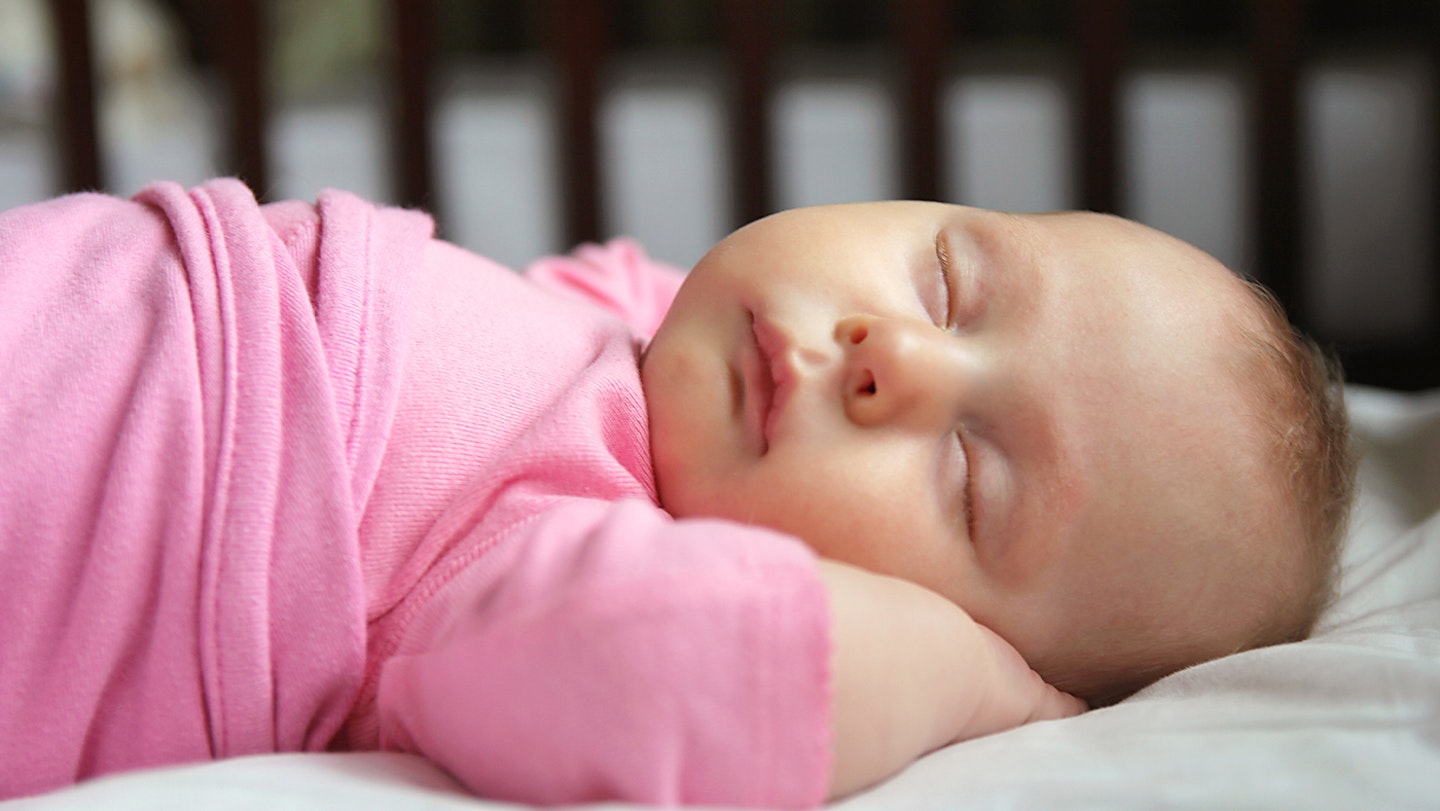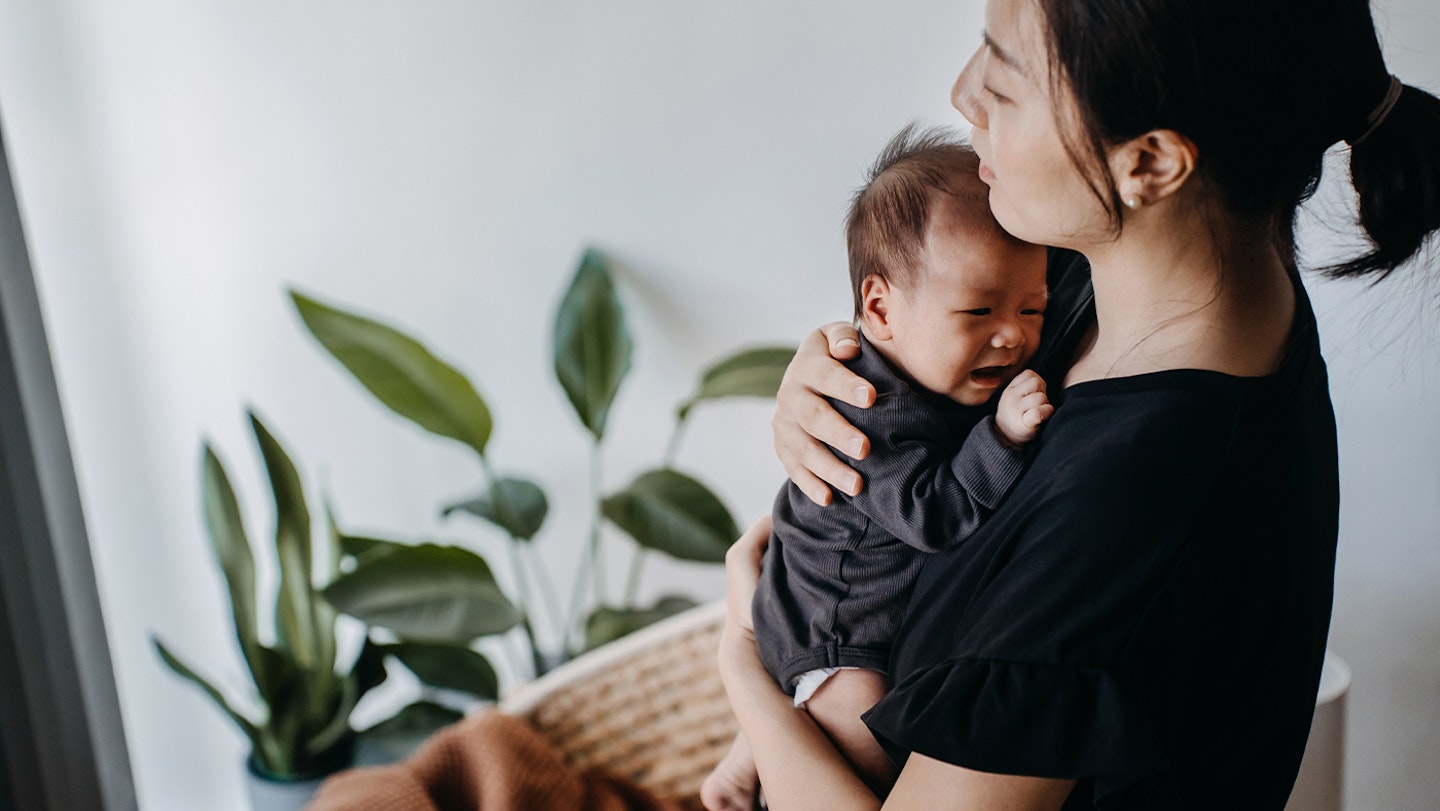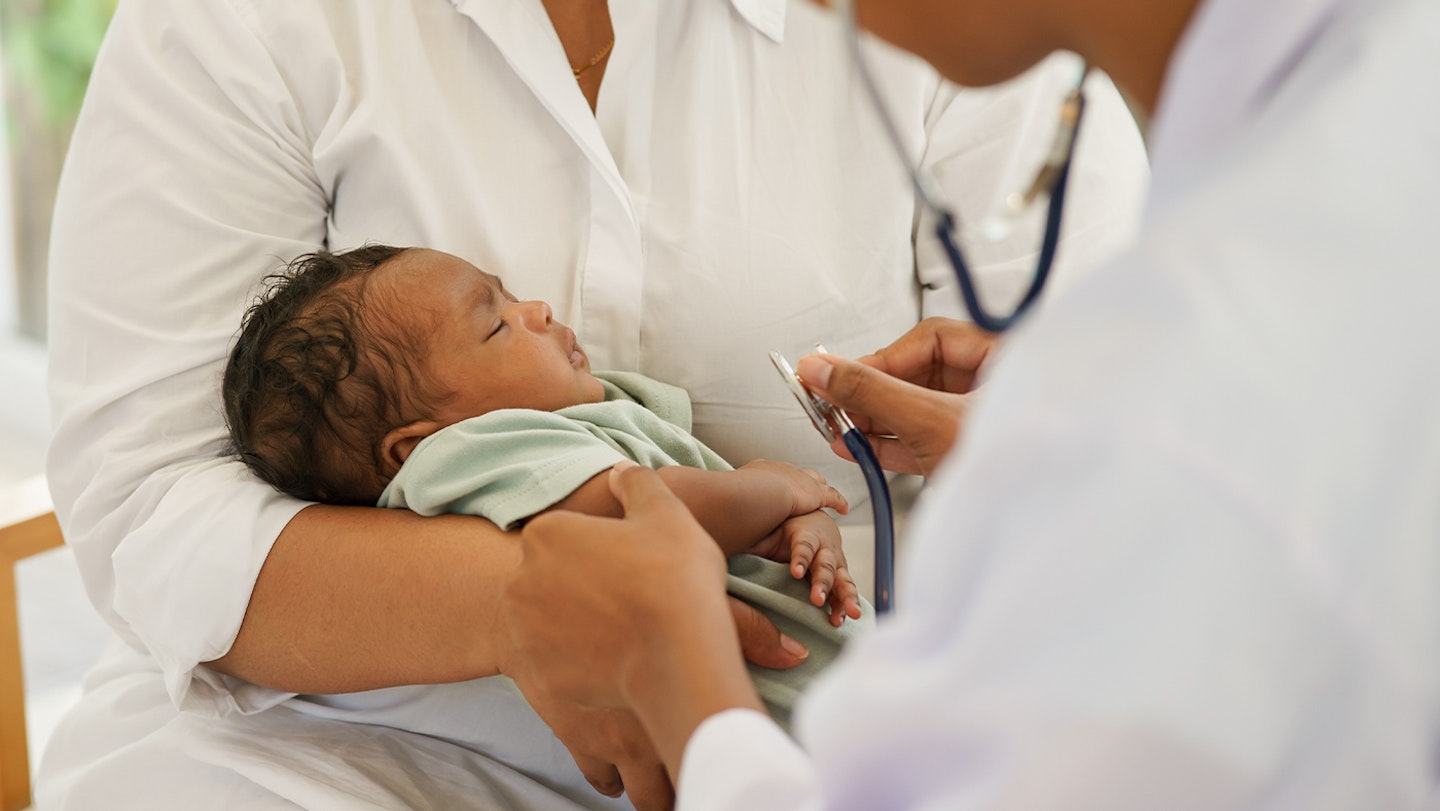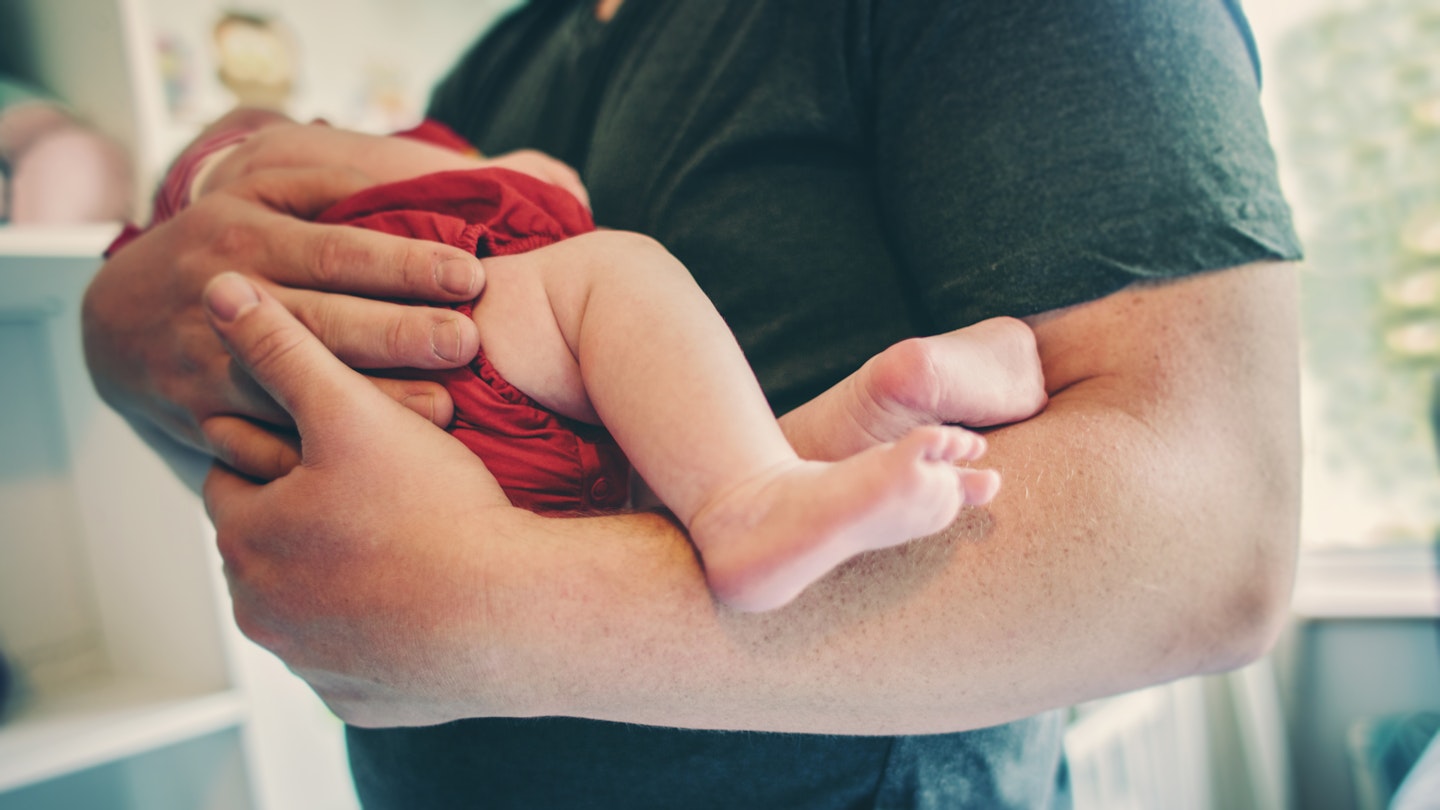Medically reviewed by Dr Alexis Missick General Practitioner with over 10 years experience working in the NHS.
As your baby continues to hit new development milestones in their cognitive and physical development, we’re here to answer all your questions and tell you everything you can expect when your baby is six weeks old.
We’re sure you can’t imagine your world without your precious new arrival. Some parents may feel like they're getting into the swing of parenthood at 6 weeks, though if you're constantly left with a list of questions, particularly in these early weeks, don't worry, you certainly won't be alone.
How much should a 6-week-old baby be sleeping?

The newborn stage of interrupted sleep for 18 hours a day is finally coming to an end. This means your sleeping routine may finally start taking hold, and you can teach them the difference between night and day.
According to Dr Missick, at 6 weeks, babies sleep 15-16 hours in 24 hours. "Night-time sleep tends to have more increments of feeding periods than later months. There is also more daytime sleeping in the early weeks." She says.
Make sure their daytime naps are different from nighttime sleeping by keeping the noise level normal and house bright. If they wake up in the night, don’t fuss or play with them and keep the house peaceful and dark. Once they understand these differences, your sleeping pattern may return to some level of normality.
How much should a 6-week-old baby be eating?
As your baby is nearing the end of a growth spurt, their feeding shouldn’t be as overwhelming as it was in the last couple of weeks. Plus, with their sleeping improving through the night, you may find fewer night feeds are necessary.
If you’re worried about how much you're feeding your baby, a guideline amount is 150-200ml per kilo of their weight. But don’t fret too much about that, as your baby will only eat what they need to right now. Just keep following their lead. Dr Missick says at 6 weeks, you'll probably be feeding baby every 3-4 hours with around 4-5 ounces per feed. "Parents should follow baby's hunger cues" says Dr Missick.
If you’re breastfeeding and you haven’t started expressing milk yet, this is a good time to start as your baby should now be used to breastfeeding by now. There are plenty of different options available when it comes to finding the best breast pump for you.
How should a 6-week-old baby be physically developing?

Six weeks in, your baby will be continuing to gain around 140-200 grams a week and growing one inch per month. Babies grow considerably during the 4-6 week mark. They should be coming to the end of their 4-6 week growth spurt this week; although they might not look much bigger to the eye, you may have noticed your little one has seemed hungrier for the past few weeks, this should calm down as you hit 7 weeks old.
Their biggest physical development so far is lifting their head when they sit upright or lie on their belly, so if they haven’t done that yet this week will likely be the one! If they’re taking their time to develop their neck muscles, encourage them by putting your face in front of theirs when they’re on their stomach during tummy time so they have something to look up to. You can also lie them on your stomach and you'll notice they'll try to lift their head to see your face.
Dr Missick says some of the biggest physical developments will be with their hands and limbs. "At 6 weeks, babies will open their hands briefly, they’ll move both arms and legs, start holding their head up when on their tummy and make facial movements like smiles." Says Dr Missick. "Parents can help by going in front of them when they are on tummy time, this will encourage them to raise their head."
How should a 6-week-old baby be cognitively developing?
There are a few exiting milestones past the 5 week old baby mark when you're onto 6 weeks:
Hearing is fully developed: With their hearing now fully developed, and their ability to focus improving, they should be able to listen and watch objects around them more intently.
Being more alert means one thing, it’s time for you and your baby to bond over some music. Using music to develop their senses is a great tool for teaching and a treat for you. Soon enough your baby will respond to their favourites, and you’ll know if you’ve got an Ed Sheeran or a baby Beyonce fan on your hands!
First smiles: Not only will you get to see those first baby smiles, they’re also using their facial muscles to create a whole load of new expressions. Get ready for some furry browed confusion, pursed lip snarling and eyebrow-raising shock. This is prime time to get the camera out and capture those Instagram-worthy moments.
Noticing colours: It is always a good idea to play with your little one, even if they struggle to focus during the early weeks. At week 6 your baby will now find it easier to focus on toys and they will be more engaged by brightly coloured toys or mobiles.
Recognising you: "At 6 weeks, their hearing and vision has improved significantly so they are able watch people as they move, differentiate them from others, and look at a toy for several seconds." Says Dr Missick. That means that by week 6, your baby may be able to recognise you and distinguish you from a stranger. You might notice this if they gurgle and grunt when you look at them up close.
6-week check up

Around this age, your baby will have their 6-8 week baby check. Your GP will check your baby’s leg and hip joints, spine and listen to their heart. They’ll also look at their reflexes, eyes and genitals. It’s a great time to ask questions if you're concerned about anything, as your GP will want to know about your baby’s development as well as how your coping.
If you’ve been struggling with anything in particular, whether it’s colic, sleeping or your own emotions, there is no shame in admitting you need some help. During this appointment, your GP can check how you’re doing physically too, whether that’s your stitches or just blood pressure. However, you should also have a postnatal appointment where they can check you over fully and ensure your body is recovering after giving birth.
What jabs should a 6-week-old baby have?
You have two more weeks to prepare yourself before your baby needs any jabs, which come at the two-month mark.
6-week-old baby: Dealing with colic
Colic usually makes itself known by the six-week mark, so if you haven’t noticed uncontrollable crying for hours on end, three times a week for three weeks, you may be in the clear. If you are dealing with colic, as 40% of babies do, here are our tips to ease the crying.
How much should a 6-week-old baby be pooing?
All those extra feeds mean a lot more pooing, but between one and ten a day is still normal as long as they're wetting their nappy around six times a day also. Dr Missick says you'll likely need to change your baby's nappy around 12 times per day.
As a new mum, you’ll probably feel like you spend most of your time researching the contents of your baby’s nappy. Don’t worry, you’re not alone. In fact, we have made a poo colour guide that will help you distinguish the weird from the worrying.
What problems should parents of a 6-week-old baby be aware of?
Postnatal Depression: Postnatal depression can begin any time within the first year of your baby’s life, and if you’ve noticed you're struggling to deal with emotions of guilt or failure you may want to have a chat with your doctor.
You will have had the baby blues in the first couple of weeks after giving birth, but by now your hormones will have settled, so if you’re overwhelmed by the fear that everything could go wrong, go see your doctor and ask for some advice on how to deal with it. There’s no shame in asking for help, it’s the best thing you can do for yourself and your family.
About the expert:
Dr Alexis Missick is an experienced General Practitioner who works with UK Meds. Dr Missick has worked in the NHS for over 10 years and has 6 years experience working internationally, mostly in the Caribbean. Her approach in General practice to prioritise helping patients better understand their health and engage in the process of improving it. She empowers her patients via patient education to share in their journey to better patient health and has lots of experience and knowledge relating to hair loss.
Stephanie Spencer is the Deputy Digital Editor at Mother&Baby and auntie to four aged 7 to 2 months old. With a particular interest in health, she loves discovering products that make parent’s lives easier.
